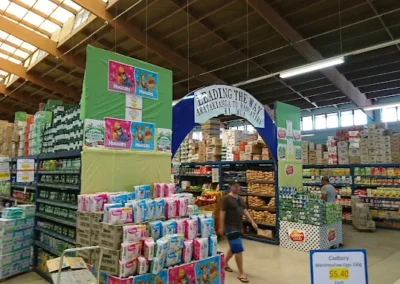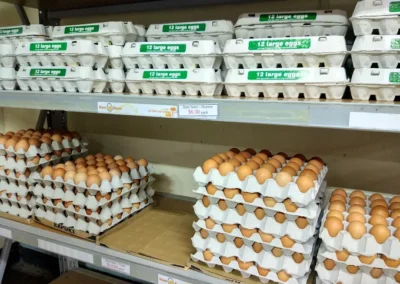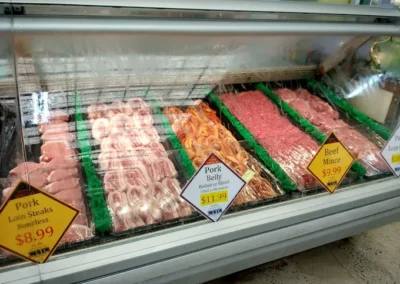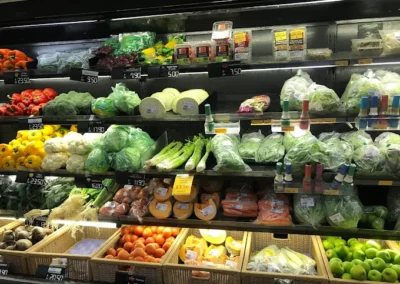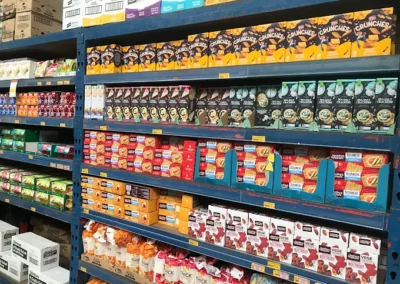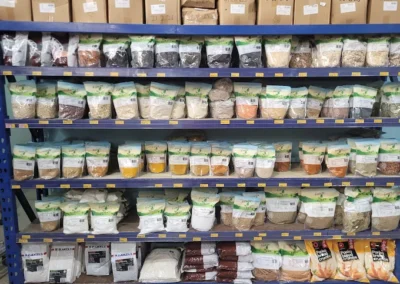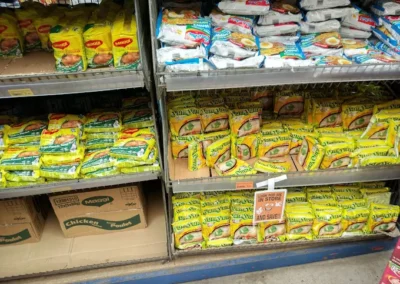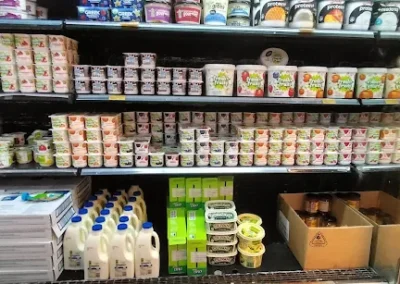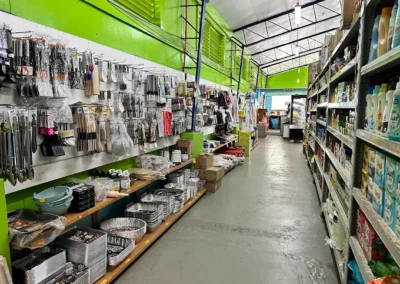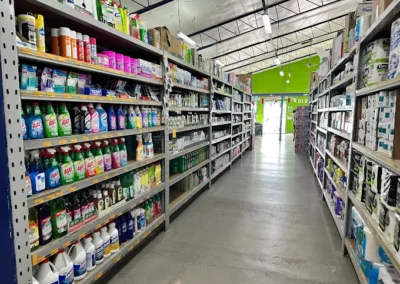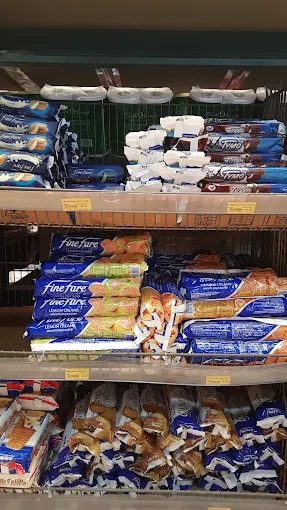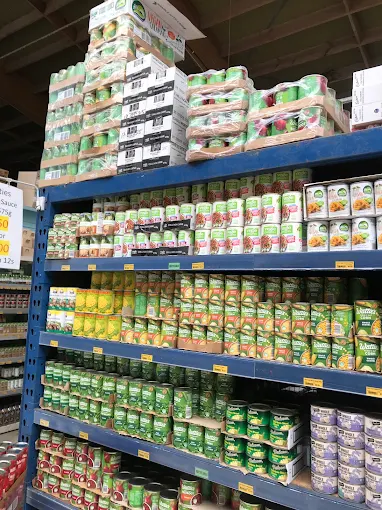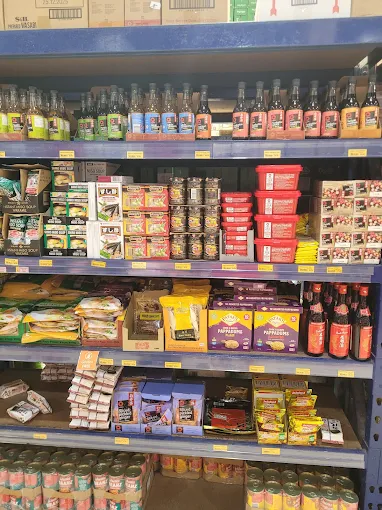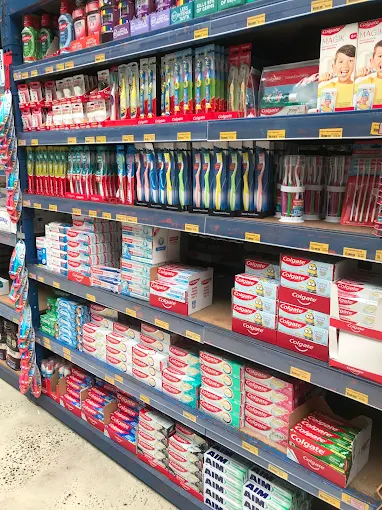Food
What you need to know
There are many traditional foods eaten regularly based on food crops and fishing. The crops include taro, maniota, kumara, breadfruit, tomatoes, cucumbers, and lettuces; and the fruits bananas, pawpaw, mango, passionfruit, starfruit, watermelons, pineapples, and coconuts. Meats/Fish include pork, goat, tuna, wahoo, mahimahi, and octopus. The traditional method of cooking is called Umukai, and this involves cooking in an earth oven. This is now largely reserved for special feasts. Ika Mata is a popular dish which is raw fish marinated in lime or lemon, mixed with coconut cream and diced vegetables such as cucumber and tomato.
New Zealand is the main source of processed and other foods, and these arrive by boat or by air. Noodles and rice are readily available.
There are plenty of options in Rarotonga for purchasing foods, with one large supermarket and several other larger shops spread around the island. Small shops are dotted around in the villages too.
Supermarkets in Rarotonga
You will find several well-stocked supermarkets offering everything from pantry staples to fresh produce and specialty items. Most carry familiar brands from New Zealand and Australia, though stock can vary, so shopping early is often wise, especially for fresh goods.
CITC Supermarket
The island’s largest supermarket, offering a wide range of groceries including frozen foods, butchery meats, baby supplies, toiletries, and liquor. Prices are generally competitive, though fresh produce can be inconsistent.
📍 Ara Tapu, between Avatiu Harbour and the airport
🕒 Monday–Friday 8 am–6 pm, Saturday 8 am–4 pm
CITC Foodland
Conveniently located in Avarua, Foodland stocks essentials including fresh produce, deli goods, and ready-to-go meals. There’s also an ice cream and smoothie counter popular with locals.
📍 Ara Tapu, Avarua town centre (between the Police Station and Island Craft)
🕒 Monday–Friday 8 am–6 pm, Saturday 8 am–4 pm
Wigmore’s Superstore
Rarotonga’s only 24/7 supermarket. Great for late-night shopping, it features local baked goods, health foods, general groceries, and a fuel station.
📍 Ara Tapu, Vaimaanga (southern Rarotonga)
🕒 Open 24 hours, 7 days a week
Prime Foods
A premium option for high-quality meats, sausages, and local produce. Ideal for those who prefer fresh ingredients and carefully curated products.
📍 St Joseph Road, Avarua (north side of the island)
🕒 Monday–Thursday 8 am–5:30 pm, Friday 8 am–6 pm, Saturday–Sunday 8 am–3 pm
CITC Patai
The newest and most modern supermarket on the island, CITC Patai serves the Titikaveka and southern communities. It offers a full range of groceries and supports local suppliers.
📍 Ara Tapu, Titikaveka
🕒 Daily 6 am–10 pm, 7 days a week
Roadside Stalls and Markets in Rarotonga
Beyond supermarkets, Rarotonga’s roadside stalls and markets offer a personal — and often more affordable — way to shop. These spots are where locals sell fresh produce, home-cooked meals, and handmade goods, often straight from their own gardens or kitchens.
Roadside Produce Stalls
Scattered along Ara Tapu (the main road), these small, self-service stalls are stocked with seasonal fruit, vegetables, eggs, and sometimes baked goods.
- Tip: Bring cash (small notes or coins).
- Best time to shop: Early morning or late afternoon, when produce is freshest.
Punanga Nui Market (Avarua)
Rarotonga’s largest and most iconic market, held every Saturday from 7 am to 12 pm.
- Expect tropical fruit, smoothies, local crafts, black pearls, pareu (sarongs), live music and much more.
- Great for meeting local growers, artists, and tour operators.
📍 West end of Avarua, along Ara Tapu
Muri Night Market
A lively food market held Tuesday, Wednesday, Thursday, and Sunday from 5 pm in Muri Beach Village.
- Features food trucks and stalls offering BBQ, seafood, noodles, desserts, and more.
- Cash only — and go early, as popular dishes sell out fast!
📍 Ara Tapu, Muri (east side of the island
Helpful tips
Food is a big part of life in the Cook Islands, both at work and in the community. Whether you’re working in a kitchen, café, bakery, or helping prepare food for events, you’ll find that hospitality and pride in presentation are highly valued.
If you’re new to food handling, make sure you follow hygiene rules closely: wash your hands regularly, wear gloves when needed, and keep workspaces clean. Many employers will expect you to learn basic food safety practices quickly, even if you don’t have formal training.
Bonus tip: learning a few local food names (like ika for fish or poke for pudding) will not only help you on the job, it’s also a great way to connect with your coworkers and customers!

